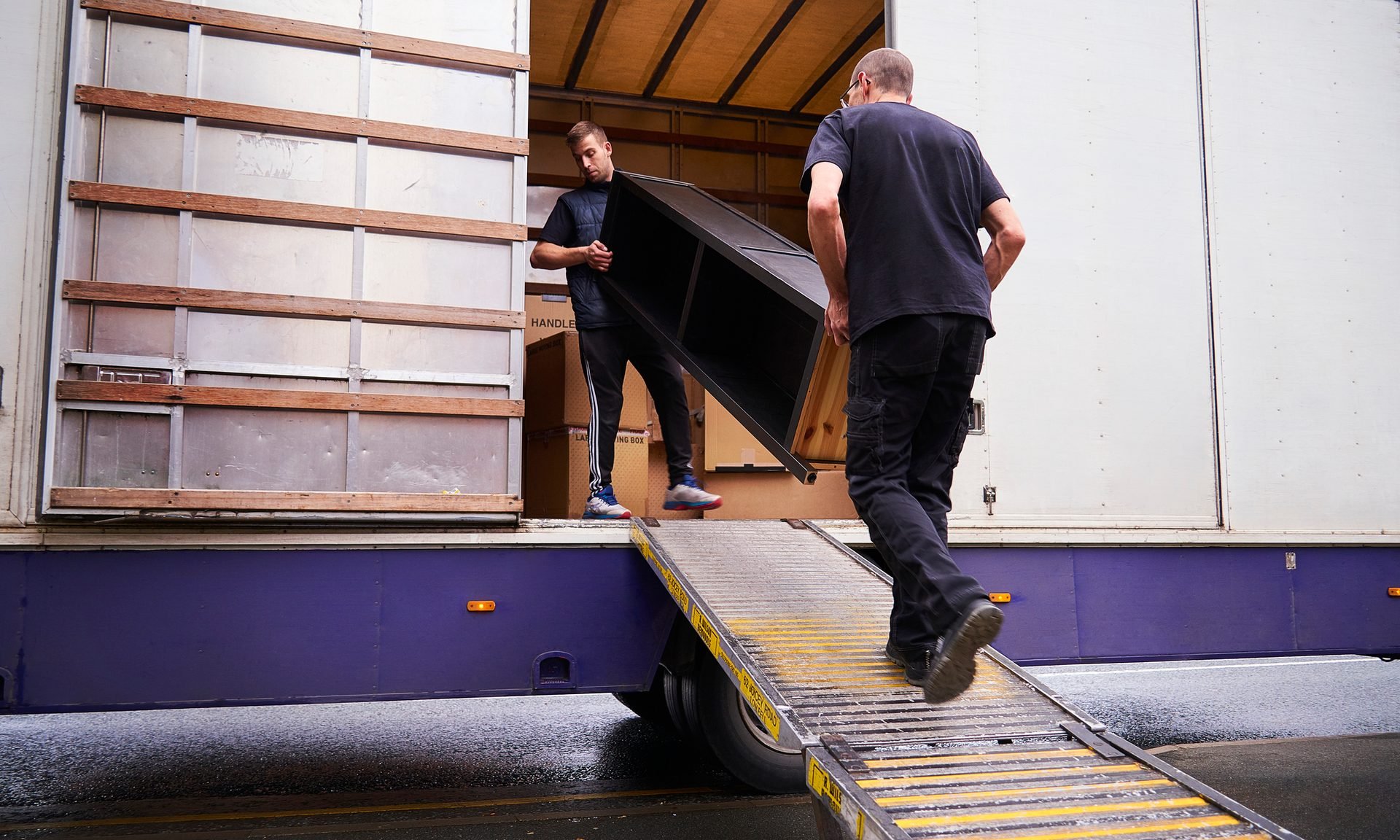Moving Out of State: What to Know
Moving out of state isn't easy, but with some planning and research it can be a great change.

Some or all of the mortgage lenders featured on our site are advertising partners of NerdWallet, but this does not influence our evaluations, lender star ratings or the order in which lenders are listed on the page. Our opinions are our own. Here is a list of our partners.
Moving out of state comes with a lot of responsibilities and considerations, including decisions about buying versus renting, whether to secure a new job first, differences in tax laws and squaring things away at your new state’s DMV.
Should you move out of state?
Before opting for an out-of-state move, here are a few questions to consider.
Can I afford to live in the other state?
Carefully research the cost of living in your desired state. The price of groceries, entertainment, housing and other expenses can vary widely from state to state. Additionally, property tax, sales tax and income tax may also differ depending on your state. This cost-of-living calculator can help you understand cost differences in the state you’re considering.
Can I find the services and lifestyle I need in the other state?
Be sure there are enough good doctors, hospitals and clinics — as well as dentists, schools, restaurants, entertainment and cultural attractions in or close to your chosen location.
Advertisement
Should I drive my car, sell it or have it shipped?
Think about whether it’s more comfortable and cost-effective to drive to your new home or fly and have your car shipped. A long-distance drive puts wear and tear on your car, but car shipping can easily run four figures for long-distance trips. Selling your car is another option. If your car isn’t in the best shape, weigh the cost of shipping it vs. selling your car, then buying another one in your new state.
Do I need to find a new job first?
While it’s probably safest to have a job lined up before you move, it’s possible to move to the location of your dreams before you’ve found a new job if you do some careful planning and can tolerate some risk. Research the job market in your desired state to make sure there’s plenty of demand for people in your field, update your resume and consider submitting applications before the move to accommodate longer hiring processes.
Additionally, it’s essential to build a financial cushion of at least six months’ expenses plus moving costs if you’re relocating without a job. If you can land remote work before you leave, that will make for the smoothest transition of all — just make sure your employer knows you're moving to a new state.
Should I rent or buy a home in my new state?
This might help you decide.
- If you’ve secured employment, plan to stay in your new state long-term, have cash for a down payment and home repairs and the housing market is favorable to buyers, you may want to buy a home in your new state.
- If you don’t have a job in your new state, don’t have much cash saved, aren’t sure how long you want to stay and/or home prices are very high, it might be smarter to start with a rental.
Planning the move
Using a comprehensive moving checklist can help ensure that your moving process goes as smoothly and stress-free as possible.
Virtually all moves involve getting estimates from reputable movers, obtaining moving supplies, scheduling utility cut-offs and arranging temporary housing if there’s a gap between when you leave your old home and when you move into your new one.
Here are some additional things that are especially important to take care of as you plan for an out-of-state move:
- Arrange for your car shipping, if you choose this option. Keep in mind that not all professional movers ship cars, so you may need to hire a third party for this job.
- If you’ll be driving to your new state, get your car serviced to make sure it’s in top condition for the trip. If you’re not bringing your car, schedule a car rental or flight.
- Find out who the utility, cable, security and internet providers are in your new state, and arrange any necessary installs and service activations.
- See if your current car, renters or home insurance providers service your new state at affordable rates. If not, find new insurance in time for your move.
- Have your mail forwarded via the USPS.
- Plan for the needs of your kids and pets during your move.
- If you need new furniture, consider shopping about six weeks before the move to allow for delivery wait times. One strategy is to buy at a local furniture retailer that also has a store and warehouse in your new state. That way you can shop before your move and have your furniture delivered when you arrive.
After the move
Here are a few responsibilities are particularly important to address after moving to a new state.
DMV paperwork
Get a new state driver’s license, and transfer the registration and title for your car to your new state. Each state has its own regulations for how long you have to complete each of these requirements; you may have as little as 10 days (for example, in California) or as long as 60 days (for example, New Jersey) , .
Find new healthcare providers for you and your family
Find new doctors, dentists and other health providers for the whole family. It’s wise to take care of this as soon as possible after your move, before anyone gets sick or has a dental emergency.
Get your pets licensed
Find a new veterinarian, make sure your pets are up-to-date on vaccines and register for a pet license in your new state or city.
Consider opening an account at a new bank
Unless you’ve been using a large, national bank, you won’t likely find a branch of your old bank in your new state. Although most banking transactions can be completed remotely, you may still want quick access to cash or a safe deposit box.
Ask about home security alarm laws in your new state
If you’re putting a security system in your new home, contact your local sheriff, police station or fire department to find out if your new state and city requires an alarm permit. This license may be necessary for law enforcement to respond to your alarm — and to avoid possible fines.
Familiarize yourself with your new state’s tax laws
Each state has its own taxes and tax laws. Here are two important state-specific taxes to know.
1. Vehicle personal property tax
Certain states charge an annual property tax on vehicles, which may come as a surprise if you’ve been living in a state that doesn’t collect this tax. States that impose a property tax on vehicles include:
- Alabama .
- Alaska (only in certain municipalities) .
- Arkansas .
- Connecticut .
- Kansas .
- Kentucky .
- Missouri .
- North Carolina .
- South Carolina .
- Virginia .
- West Virginia .
2. Personal state income tax
If you’re moving from a state with no income tax to a state that has one, you’ll need to file a state income tax return in addition to your federal tax return each year. If you’re moving to a state with no income tax, you’ll have one less form to file.
Article sources
NerdWallet writers are subject matter authorities who use primary,
trustworthy sources to inform their work, including peer-reviewed
studies, government websites, academic research and interviews with
industry experts. All content is fact-checked for accuracy, timeliness
and relevance. You can learn more about NerdWallet's high
standards for journalism by reading our
editorial guidelines.
- 1. State of California Department of Motor Vehicles. New to California. Accessed May 20, 2025.
- 2. New Jersey Motor Vehicle Commission. Moving To New Jersey. Accessed May 20, 2025.
- 3. Alabama Department of Revenue. Vehicle Valuation. Accessed May 20, 2025.
- 4. State of Alaska. General Vehicle Registration. Accessed May 20, 2025.
- 5. Arkansas Department of Finance and Administration . Moving to Arkansas. Accessed May 20, 2025.
- 6. Town of East Hartford. Motor Vehicle Property Tax. Accessed May 20, 2025.
- 7. Unified Government of Wyandotte County and Kansas City, Kansas. Motor Vehicle Fees and Payment Options. Accessed May 20, 2025.
- 8. Kentucky Department of Revenue. Motor Vehicle Property Tax.
- 9. City of St. Louis. About Personal Property. Accessed May 20, 2025.
- 10. N.C. Division of Motor Vehicles. Vehicle Property Taxes. Accessed May 20, 2025.
- 11. York County South Carolina. Registering a Vehicle & Address Change. Accessed May 20, 2025.
- 12. Fairfax County Virginia. Vehicle Taxes & Fees. Accessed May 20, 2025.
- 13. Berkeley County Commission. Personal Property. Accessed May 20, 2025.
More like this
Related articles
AD
Stress-Free Moving with Safeway
Call a moving coordinator at Safeway Moving Systems Inc.
Mon–Thu 9a–8p, Fri 9a–7p, Sat 10a–7p, Sun 10a–4p
Lock In 10% Off Today
on moveBuddha's website

AD

Stress-Free Moving with Safeway
- Transparent flat-rate pricing with no hidden fees;
- GPS-tracked trucks and barcoded inventory system for peace of mind;
- Special Offer: Mention "10%" for a limited-time NerdWallet discount.
Call a moving coordinator at Safeway Moving Systems Inc.
Mon–Thu 9a–8p, Fri 9a–7p, Sat 10a–7p, Sun 10a–4p

Lock In 10% Off Today
on moveBuddha's website











